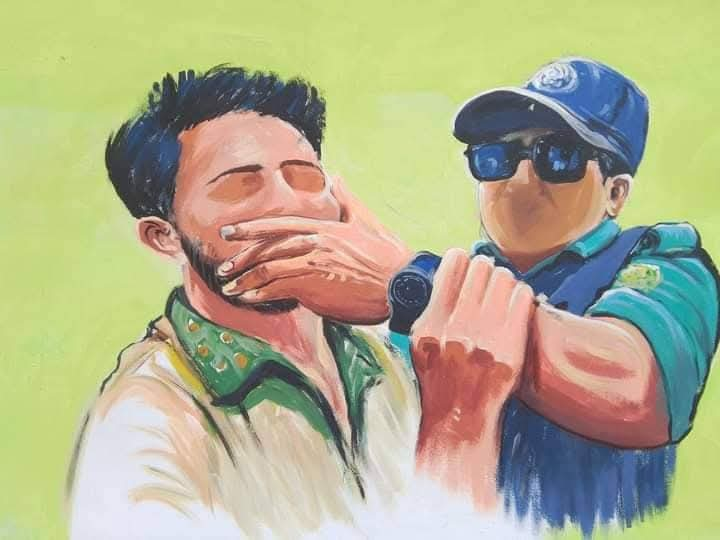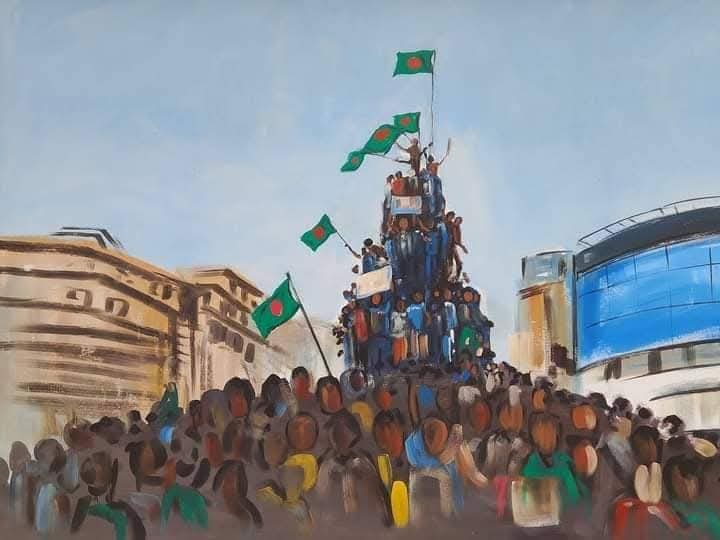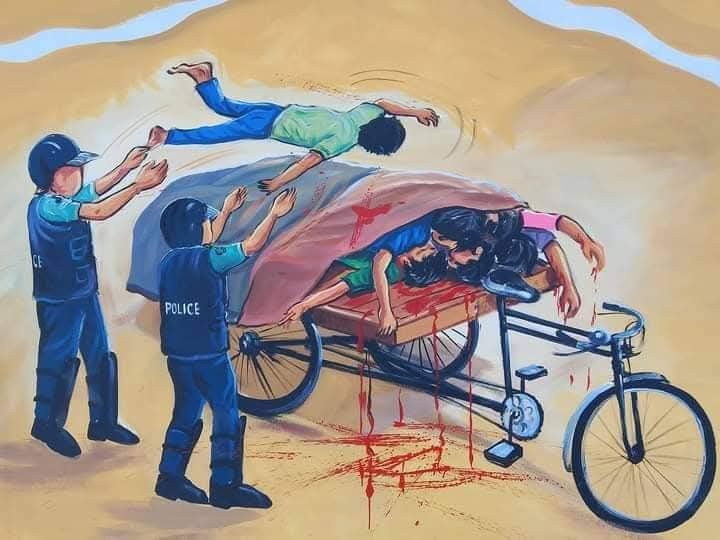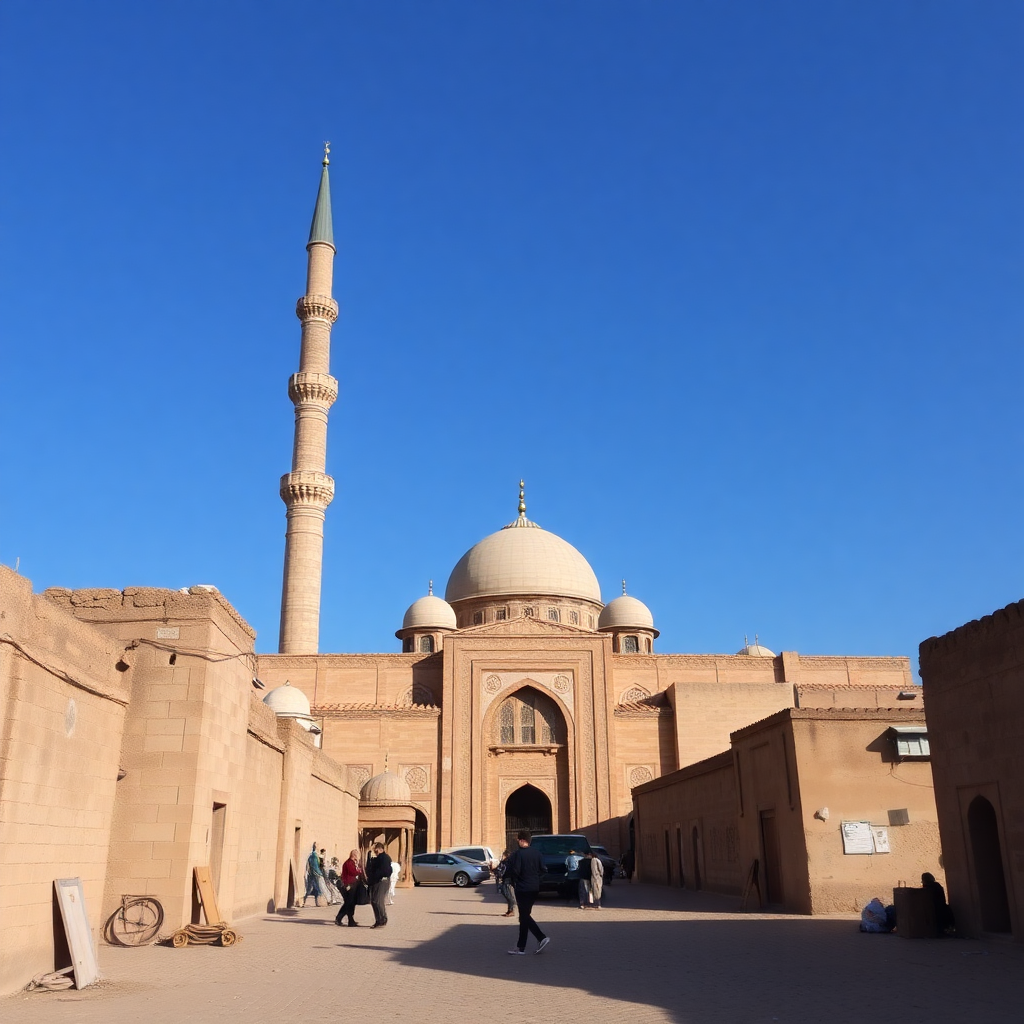Quota Movement and Collapse of Bangladesh Government 2024- Bangladesh’s Prime Minister Sheikh Hasina left the country on August 5, 2024. The opposition parties boycotted the most recent legislative elections, which she won in January 2024 after holding the office since 2009. The country is currently governed by an interim administration headed by Muhammad Yunus, an economist and Nobel Peace Prize recipient. There have been complaints about the supposed high levels of corruption and worries that party followers would profit the most from the greater affluence, even though Hasina and her Awami League party had presided over economic growth and development.
PART -01
Reasons for Sheikh Hasina’s Downfall
University students were the main leaders of the 2024 Bangladesh Quota Reform Movement, a series of demonstrations in Bangladesh that opposed the government and supported democracy. After the movement first concentrated on reforming the quota-based hiring process for government positions, it grew in July to condemn the government’s slaughter of demonstrators and civilians, primarily students, which many saw as dictatorial. The Student-Popular Uprising, which started as a student movement, eventually grew into a full-scale public rebellion.The Awami- League government fell through the quota movement. This study will focus on the reasons for the fall of the Awami -League government and criticism of the interim government.
We can separate the causes of the Awami League government’s downfall into two categories such as:
- Long-term causes
- The contemporary causes of the quota movement.

1. Long-term Causes of Failure of Sheikh Hasina
Press freedom has been restricted and criticism has been suppressed by the contentious Digital Security Act. While insufficient job creation and youth unemployment continue to be major concerns, public trust has been eroded by corruption, cronyism, and growing economic inequality. The lack of sustainable development has been criticized in relation to environmental issues such pollution, deforestation, and the effects of coal plants like the Rampal Power Plant. Although initially commended, the government’s response to the Rohingya refugee crisis has shown management flaws, placing a burden on local systems.The public’s needs have been disregarded by this government. Despite Bangladesh’s democratic status, the people have been unable to cast ballots for them in the country’s long-sealed elections. One of the primary causes was the change from a democratic to a dictatorial regime. Here are a few long-term factors that contributed to the Hasina government’s downfall.
- Insufficient elections
- Preventing dissenting political leaders from holding meetings, suppressing them, imprisoning them, and committing genocide.
- Politics is being taken to the grassroots and a few individuals are playing a dominant role over the rest of the politicians.
- Extreme political control over bureaucracy
- Banning political and religious leaders from calling them Jamaat-Shibir.
- Making the Western world an enemy
- Human rights abuses and a culture of fear
- The Awami League government was a government dependent on the police and administration.
- Excessive dependence on India created a perception in the minds of the people that Bangladesh was run according to Indian dictates.
- Extreme corruption, bribery, giving jobs in exchange for money, forging government documents
- The country’s reserves are decreasing, foreign debt is increasing, and as a result, anger is created among the people.
- There is no fair justice system in the country.
2. The contemporary causes of Failure of Sheikh Hasina
- Stubbornness, arrogance and overconfidence of Sheikh Hasina Government
- Not changing quotas while simultaneously making fun of students and referring to them as Razakar
- Lack of vision, attacking demonstrators with police
- Committing genocide by shutting down the internet
- The leaders and volunteers of the Awami- League continued to make mistakes at every turn because they lacked a chain of command and political participation.
- The idea to incite the Students’ League in order to subdue the students was a grave mistake.
- Public mistrust of the Sheikh Hasina administration.
PART -02
Criticism of the Interim Government of Bangladesh
Members of Dhaka University’s Democratic Student Power Party have adopted a nuanced and calculated stance in the quota reform struggle. When the quota reform campaign first began, it gained traction after six individuals, including Abu Sayed, perished on July 16. The situation became even more dangerous after the government made the fatal error of firing on the protestors, even though they later partially subdued the movement by enforcing a curfew and blocking the internet. Under the influence of several political parties and with the counsel of VP Noor, the leader of the 18-member quota reform movement, the coordinator discreetly submitted a nine-point demand following the curfew, which subtly called for Sheikh Hasina’s overthrow. After that, the coordinators began searching for chances, the public stepped up to help the kids, and the movement carried on. Individuals from all areas of life began to come forward. Tear gas, baton charge, and shooting by the police persisted. When the authorities failed to quell the movement, the organizers of the 9-point demand turned to the general public and students to make the 1-point demand. Subsequently, the movement grew stronger and spread throughout the nation. The public flocked to the streets as the campaign gained traction in nearly every district of the nation, including Dhaka, Rajshahi, Chittagong, and Khulna. Sheikh Hasina resigned at 12.30 p.m. on August 5. However, politics is a complicated equation. The student body was carefully leveraged by a small political party to gain power. Muhammad Yunus took office as Bangladesh’s Chief Adviser on August 8, 2024, when President Mohammed Shahabuddin swore him in.Knowing that certain coordinators had called for his resignation, M Sakhawat Hussain requested that the Awami League be restructured on August 12, 2024, which is a form of power abuse. The public has been drawn to the following locations by the student coordinators:
- Traffic control
- Painting
- Cleaning
- Guarding Hindu temples
- To guard against robbers

Sheikh Hasina’s downfall and subsequent takeover of power were premeditated and strategically planned. Although the Annan political party and the democratic student movement worked together to construct this conspiracy, it might be argued that the organizers exploited the Annan political parties to gain power. The following are some of the questions that were raised regarding the attitude of the temporary government when it was formed:
- Interim government term
- Validity
- How much quality is made up of
- Neutrality
Criticism of the Interim Government
A leading role is already being played by student coordinators. Nearly all university campuses have coordinators who have been given policies and told to abide by them. There is a certain amount of excessive arrogance in instructing student advisors and convenors about the international campus, internal procedures, or image politics. They are acting in a patronage capacity in this instance. It is not reflected in their democratic attitudes. They are giving pupils the incorrect message and abusing their position in the name of young leadership. In order for students to resume teaching, student politics must end. By banning student groups, student leagues, camps, and the disease called student parliament that they themselves are infiltrating will create a serious and complex situation. This study gives an indication that the Democratic Student Power Party wants to seize power in the future and establish a monarchy. The Democratic Student Power Party made its debut on October 4, 2023. The party had a total of 31 members. Advisor Nahid Hasan was a secretariat member. Also, Asif Mahmud Sajeeb Bhuiyan was the former president of the Student Rights Council of Dhaka University. The political position of the Democratic Student Power Party was moderate and democratic. The party’s goal was to develop new student politics. One thing to note here is that the 2 advisors, and almost all the other coordinators in the front row, were members of this Student Power Party. It is worth considering that most of the central coordinators and advisors of the movement that took place across the country were members of a party. This is an advance message for state politicians as to what the Democratic Student Power Party actually aims to achieve.
Constructive criticism of the Interim Government
- The interim government is pro-American, this is responsible for the fall of Sheikh Hasina’s government
- Only teachers and timekeepers of Dhaka University got a place in the advisory council, but when quota reform was carried out, the quota was renamed again.
- One could refer to the temporary administration as an NGO government. A number of representatives from Dr. Yunus’s Grameen Bank were appointed consultants. Although there was no lack of intelligent people in the nation, it was a mistake to manage the organization with both novice and seasoned pupils.
- The term of the road supervisor was 3 months, but this government does not have a specific term.
- During the quota movement, one of the 9-point demands was to stop student politics, but they themselves came as advisors, and the activities of the so-called coordinators who created factories of fascism on every campus were similar to those of the Chhatra League.
- The coordinators are demanding that the Awami- League be banned, and are trying to minimize the BNP so that their political path is smooth.
- Every political party has its own old traditions, and there are leaders and activists who sacrificed their lives for the formation of an independent Bangladesh. Although Bangabandhu Sheikh Mujibur Rahman, the National 4 leaders, and Major Ziaur Rahman contributed to the liberation war, the attempt to ban or minimize those old parties for the activities of current leaders and activists is an undemocratic and dictatorial plot.
- The quota reform movement was a neutral and all-student movement, but the main coordinators leading this movement were members of a political party called the Democratic Student Power of Dhaka University.
- After becoming an advisor to the interim government, Dr. Yunus withdrew the case of embezzlement of 664 crore taka. In this case, he forced the sitting judges and Supreme Court judges to resign under pressure from students. He cleared himself of the case without trial by the new appointees.
- The advisors are just prolonging the time by talking about reforms, but they are not able to make any changes to the system and carry out reforms, they are only changing the people in the system.
- Mob justice increased during the interim government, but the government was unable to take any appropriate action.
- Although the government took responsibility for the treatment of the students injured in the quota movement, its effectiveness has been questioned, many students and the general public have not received proper treatment. The combination of the government with the people has not been developed properly. The injured people have not received financial assistance properly. The interim government, which gained power through sacrifices, could not ensure proper treatment for all of them, so it can be said that this government has largely failed in its work.
- The additional VAT and increase in call rates are a form of oppression on the poor. Due to these reasons, the people are gradually losing trust in the interim government.
- All advisors to the interim government should have declared their assets before taking office, and then they should have been able to declare their assets after their term ended.
- The main responsibility of the interim government is to reform the Election Commission and quickly establish a democratic government in the country, but they are thinking of reforming the constitution. This interim government does not have the authority to reform the constitution.
In 2024, opposition groups have criticized Bangladesh’s interim administration for allegedly lacking impartiality by giving preference to the ruling Awami -League, so compromising its ability to conduct free and fair elections. Mistrust has grown as a result of claims of political bias in important appointments, opaque decision-making, and a failure to provide equal opportunities for all political blocs. Critics have also pointed to the interim government’s failure to keep peace and order throughout the transition period and stop electoral violence. Additionally, popular distrust has grown as a result of concerns about its accountability and misuse of authority, particularly in enforcing policies beyond its mandate. This has exacerbated political polarization and unrest in the nation.









Leave a Reply